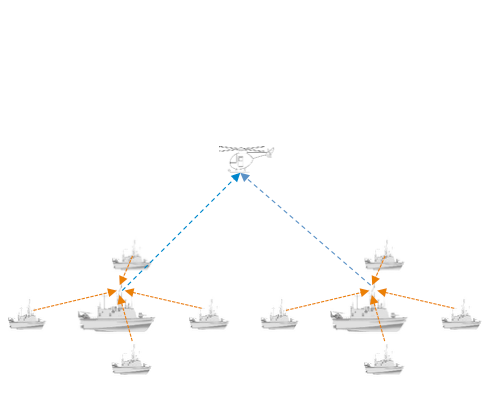Project Details

The contest between code-makers and code-breakers has been going on for thousands of years. Recently, quantum mechanics has become an important weapon in the code-makers’ arsenal. The so-called quantum key distribution (QKD) protocol can, in principle, provide unconditional security based on the laws of quantum physics.
While QKD has been successfully demonstrated through long-distance fiber and free space links, there are tremendous challenges in applying QKD in the maritime environment, especially when both high secure key rate and strong security are required. The highly absorptive and chaotic nature of a free space optical link in this scenario requires that the proposed QKD scheme must be able to work through a high-loss and time-dependent communication channel. The mobility of the QKD platforms requires the QKD network to be highly reconfigurable.
We will develop a loss-tolerant, highly secure, reconfigurable QKD network which can be applied in the maritime environment. Our scheme is the synthesis of a loss-tolerant protocol with a measurement-device-independent (MDI)-QKD protocol. As such, it is automatically immune to all detector side channel attacks. Moreover, it takes into account source flaws in the encoding process. One important research goal is to develop a loss-tolerant MDI-QKD theory that takes full account of the finite-size finite-decoy state effects in a maritime environment. To adapt to unpredictable environment changes, the proposed system can be operated in three different modes: the highly secure MDIQKD mode, the highly efficient decoy state BB84 QKD mode, and the classical communication mode. The proposed system also has a built-in position based authentication scheme which is highly desired for ship-to-ship QKD.
The research team includes partners from Oak Ridge National Laboratory, University of Tennessee, Southern Illinois University and University of Toronto, Canada.


